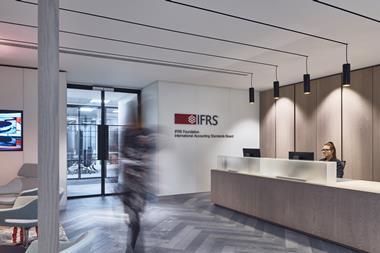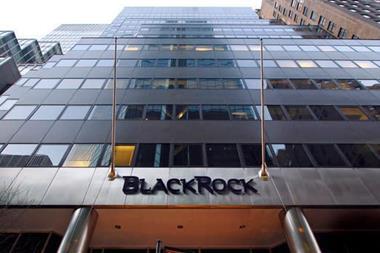The backing by IOSCO of a sustainability standards board under the IFRS Foundation is “a very big deal”, Martijn Bos, policy advisor for reporting and audit at €7trn Dutch institutional investor group Eumedion has said.
The international organisation of securities markets regulators last week issued a statement setting out its priorities and vision for such a board, saying there was an urgent need for globally consistent, comparable and reliable sustainability disclosure standards.
Erik Thedéen, chair of the IOSCO sustainable finance task force and director general of Finansinspektionen of Sweden, said: “IOSCO proposes a pragmatic approach supporting ‘climate first’, though with a clear path to covering the breadth of sustainability topics, and to drive international consistency on core enterprise value-related information while establishing a mechanism that supports interoperability with jurisdiction-specific requirements.”
Although formally IOSCO has no say in the decision about the creation of a sustainability standards board, its support is pivotal, said Bos.
“Twenty years ago they ignited the near-global adoption of IFRS financial reporting standards,” he explained. “They are the guardians of the proper functioning of markets, so that they give credit to this initiative in this way means they see themselves enforcing standards on non-financial information standards issued by the IFRS Foundation sustainability standards board.”
At credit rating agency Moody’s, analyst Marina Cremonese referred to IOSCO’s new “partnership” with the IFRS Foundation to develop common standards for corporate climate risk disclosures.
She said it would improve comparability for investors and combat greenwashing, and that disclosure standardisation would make asset managers’ sustainable investing strategies more transparent and consistent.
Eumedion’s Bos welcomed how concrete IOSCO’s statement was, seeing the organisation as having sketched out an approach by which the IFRS Foundation sustainability standards board would have an investor focus, while leaving room for other reporting frameworks to play a role beyond that scope.
“Where exactly the boundary lies is something that will evolve,” he said.
He also said he saw IOSCO as having left the door open to double materiality, which would mean standards for reporting by companies not only on sustainability matters affecting them, but on their environmental or social impact.
In that regard, too, where the boundaries would lie remained to be seen, he said.
Enabling SFDR success
Speaking during an AXA Investment Managers webinar yesterday, Rients Abma, executive director of Eumedion, said the investor group was promoting the establishment of a worldwide sustainability standards board as this would address the “crazy situation” where institutional investors were legally required to make sustainability-related disclosures about their portfolios while the investee companies did not have legal obligations to publish key sustainability figures and statements.
Eumedion’s members were working very hard on the implementation of the EU’s sustainable finance finance disclosure regulation (SFDR), which was “an enormous complex burden”, and should be ready by 10 March, when it enters into force, Abma said.
The establishment of international sustainability reporting standards would lead to a provision of information that investors could use in making the SFDR a success, he said.
The IFRS Foundation trustees recently indicated that feedback to their consultation on the creation of a sustainability standards board encouraged them to proceed down this route, with a view to producing a definitive proposal, including a roadmap with timeline, by the end of September this year.








